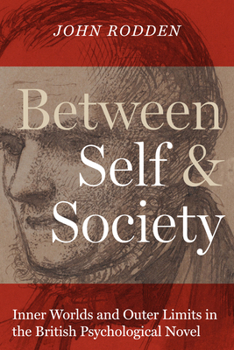Between Self and Society: Inner Worlds and Outer Limits in the British Psychological Novel
Select Format
Select Condition 
Book Overview
Between Self and Society explores the psychosocial dramas that galvanize six major British novels written between the eighteenth and twentieth centuries. The book challenges an influential misconception that has for too long hindered appreciation of the psychological novel. John Rodden argues that there should be no simplifying antithesis between psychological, "inner" conflicts (within the mind or "soul") and institutional, "outer" conflicts (within family, class, community). Instead, it is the overarching, dramatic--yet often tortuous--relations between self and society that demand our attention. Rodden presents fresh interpretations of an eclectic group of prose fiction classics, including Tobias Smollett's The Adventures of Roderick Random, William Godwin's Caleb Williams, Thomas Hardy's The Mayor of Casterbridge, Ford Madox Ford's The Good Soldier, Wyndham Lewis's Tarr, and D. H. Lawrence's Women in Love.
Far from being merely admirable experiments, let alone daring though interesting failures, these fictions are shown to possess aesthetic unity, stylistic consistency, and psychic force. Between Self and Society thus impels our careful reconsideration of novels that represent major artistic achievements, yet have been either unjustly neglected or appreciated in limiting ways that do injustice to their psychological aspects. Rodden's vibrant discussion invites an upward revaluation of these works and encourages the full recognition of their value and significance in British literary history.





